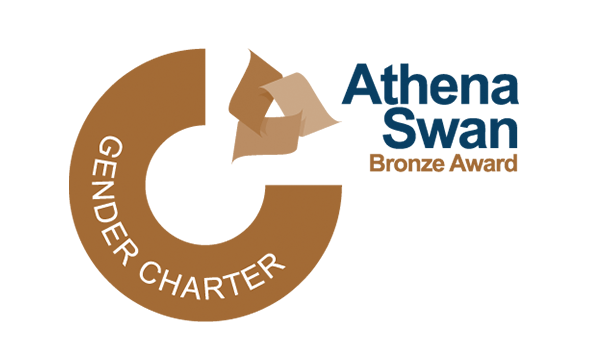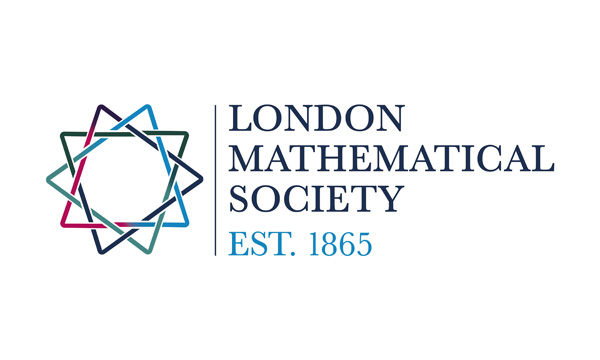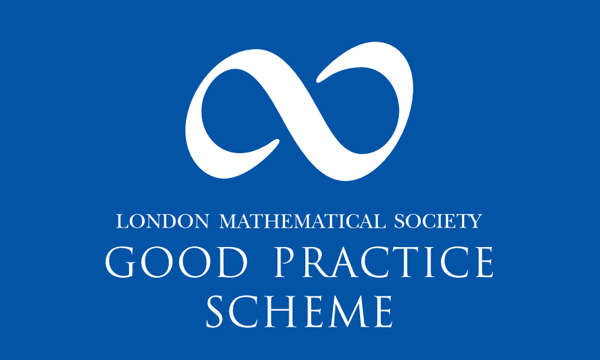Cohomology and geometry of infinite groups
Friday 23rd April 2021, online Local organiser: Anitha Thillaisundaram
Group cohomology is a classical subject with links to many areas of mathematics, such as representation theory and number theory. In this meeting, we will focus on the connections between cohomology of groups with geometric group theory. This meeting will build on the LMS ECR online lecture series (COVID Working Group Committee) on the proposed theme, delivered by Ilaria Castellano.
All talks will be held online via Microsoft Teams. The timetable is as follows, where all times are given in British Summer Time:
- 13:15-14:15: Peter Kropholler (University of Southampton), Kaplansky's Conjectures and Baer's Question: a new look at old problems and their connections with functor categories for groups
- 14:20-15:20: Ilaria Castellano (University of Milano-Bicocca), Geometric invariants for totally disconnected locally compact groups
- 15:20-15:50: Break
- 15:50-16:50: Nansen Petrosyan (University of Southampton), Cohomology of group theoretic Dehn fillings
To register for the event and to receive the talk links, please email the organiser Anitha Thillaisundaram (AThillaisundaram@lincoln.ac.uk).
The FCG Research Group is supported by an LMS Joint Research Groups in the UK Scheme 3 grant. Limited funding is available for PhD students, allocated on a first come first served basis.
For UK-based mathematicians with caring duties the LMS has a Caring Supplementary Grant scheme which allows participants of meetings like ours to apply for help covering caring costs.
Abstracts
Peter Kropholler (University of Southampton), Kaplansky's Conjectures and Baer's Question: a new look at old problems and their connections with functor categories for groups
I will survey some of the known results on the zero-divisor conjecture particularly in the case of solvable groups and then I will reflect on Baer's question of which group rings are Noetherian. The territory goes back to work of Mal'cev, Kaplansky, Baer and Hall in the mid and early 20th century and is very much alive today as evidenced by the huge recent progress with conjectures such as the Farrell-Jones conjecture and the recent work of Gardam that reveals a counterexample to Kaplansky's units conjecture using Promislow's flat three manifold group.
Ilaria Castellano (University of Milano-Bicocca), Geometric invariants for totally disconnected locally compact groups
Several concepts from geometric group theory can be naturally generalized to the realm of compactly generated topological groups and, in the last decade, the large-scale geometry of locally compact groups has appeared to be a new promising subject of research. The geometric approach seems to pay more when applied to the class of totally disconnected locally compact groups (= TDLC-groups) thanks to the existence of the Cayley-Abels graphs which often facilitate the adaptation of classical arguments for discrete groups to the topological case.
In this talk, I will introduce the rational discrete cohomology for TDLC-groups and exploit it to show that some geometric invariants of these groups possess a cohomological flavour. Among such applications, I will discuss finiteness properties FP_n/F_n and a characterization of the hyperbolicity of compactly presented TDLC-groups.
Nansen Petrosyan (University of Southampton), Cohomology of group theoretic Dehn fillings
Dehn filling starts with a 3-manifold with toral boundary and constructs a new manifold by gluing a solid torus by identifying their boundaries. A celebrated theorem of Thurston asserts that most Dehn fillings preserve hyperbolicity. There is an analogous construction in group theory, called group theoretic Dehn filling.
In this talk, I will explain how one may compute the cohomology of group theoretic Dehn fillings of hyperbolically embedded subgroups. This has many applications, for example, to Poincare Duality groups, simplicial volume, SQ-universality, and common quotients of acylindrically hyperbolic groups. For example, we show that any acylindrically hyperbolic group of type FP(infinity), for each k > 1, has an acylindrically hyperbolic quotient with Kazhdan's Property (T) which is of type FP(k-1) but not of type FP(k).
This is joint work with Bin Sun (Oxford).




